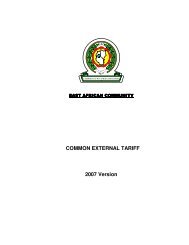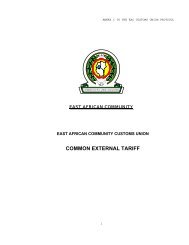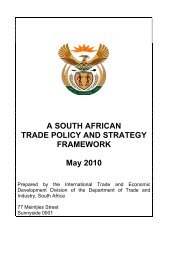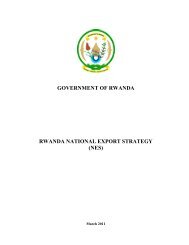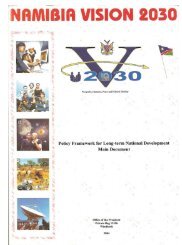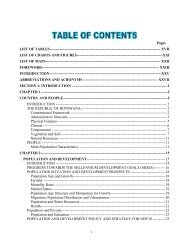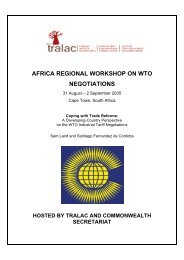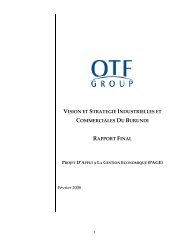National Trade Policy Document 2012 - tralac â trade law centre
National Trade Policy Document 2012 - tralac â trade law centre
National Trade Policy Document 2012 - tralac â trade law centre
You also want an ePaper? Increase the reach of your titles
YUMPU automatically turns print PDFs into web optimized ePapers that Google loves.
survive the challenges of the ever increasing competition on the<br />
international trading environment, greater emphasis will be put<br />
on the production and export of processed goods in all sectors<br />
of the economy, in particular mining and agriculture.<br />
The export of commodities will be regulated in order to boost local<br />
product beneficiation. Government will control, through appropriate<br />
instruments, the exportation of primary products where valueaddition<br />
options are readily available. A link will be created between<br />
producers of commodities and manufacturers that are involved in<br />
value-addition. The whole value chain of selected products will<br />
be monitored so that support programmes for value-addition will<br />
continuously be put in place at each level of beneficiation.<br />
3.3 CLUSTER INITIATIVE<br />
Competitive advantage is not created in a single firm alone.<br />
Efficiency in internal operations is essential, but not necessarily<br />
sufficient to compete globally. Factors external to the business<br />
are becoming increasingly important. Each firm is inherently part<br />
of a cluster of activities made up of firms along the value chain as<br />
well as related and supporting organisations. Around the world, it<br />
has been demonstrated that strong clusters ensure a sustainable<br />
competitive advantage which is necessary for economic growth<br />
and development.<br />
The motive for adopting such a strategy, as enunciated in the<br />
Industrial Development <strong>Policy</strong>, is based on the proven benefits<br />
accruing in terms of attainment of economies of scale, lowering<br />
production and transaction costs, global competitiveness and<br />
development of comparative advantages. Government will<br />
support industrial clusters through training in export marketing,<br />
identification of potential export markets including niches, and<br />
facilitating preferential access to <strong>trade</strong> finance.<br />
11



